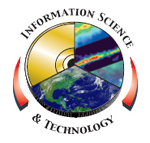
Please Note: The content on this page is not maintained after the colloquium event is completed. As such, some links may no longer be functional.
Larry Kerschberg
A Service-Oriented Knowledge Management Framework over Heterogeneous Sources
Wednesday, March 10, 2004
Building 3 Auditorium - 3:30 PM
(Refreshments at 3:00 PM)
Dr. Larry Kerscheberg, will talk about A Service-Oriented Knowledge Management Framework over Heterogeneous. The Internet and the Web have experienced explosive growth over the past few years. Clearly, large organizations such as NASA have large collections of data and knowledge distributed within the organization. Complementing this internally held knowledge is the information contained on the Web and in other heterogeneous sources. Principal Investigators and researchers create new knowledge value-added processing of data. They publish these results in scholarly journals, on their Web sites, and in federations to which they may belong. Increasingly, knowledge external to the organization may be as important, or even more important to an organization�s mission and competitive advantage.
Dr. Larry Kerschberg will discuss the requirements for a service-oriented knowledge management framework to assist scientists and engineers in searching for, capturing, representing, sharing, and exploiting knowledge contained in heterogeneous sources. These sources include the World Wide Web, file systems, database systems, XML-repositories of semi-structured data, and the emerging Semantic Web.
Dr. Kerschberg will focus on his recent work on agent-based search and will discuss WebSifter and its successor, Knowledge Sifter. These motivate the issues faced in constructing ontologies and associated mechanisms to assist users in posing queries against heterogeneous data sources, and in ranking and integrating the returned results.
Finally, Professor Kerschberg will present a knowledge management framework consisting of "cognitive middleware services" to: 1) represent user preferences, 2) interoperation among multiple ontologies, and 3) providing an object-oriented view of data with appropriate lineage and provenance services back to the original data sources.
Dr. Larry Kerschberg is a Professor of Information and Software Engineering and co-director of the E-Center for E-business at George Mason University. He also has an appointment in the School of Computational Sciences at GMU. He received his Ph.D. in Systems Engineering in 1969 from Case Western Reserve University. He is a Fellow of the Japan Society for the Promotion of Science and in 1998 he spent ten weeks at Kyoto University, working with the late Professor Yahiko Kambayashi.
His areas of expertise are intelligent information integration, knowledge management, and agent-based systems for e-business. He is the founding editor-in-chief of the Journal of Intelligent Information Systems published by Kluwer Academic Publishers.
In 1994, Kerschberg led the Computer and Information Science team, consisting of D. Menasc�, H. Gomaa and J. Yoon, in the NASA Independent Architecture Study for the Earth Observing and Data Information System (EOSDIS). The GMU Study proposed a performance-oriented federated approach to this data-intensive system; NASA has funded the development of such a federated approach. His paper with Menasc� and Gomaa received the Best Paper Award at the IEEE International Conference on the Engineering of Complex Systems in November 1995.
More recently, his research has focused on agent-based systems for e-business and knowledge management. In 2001 he was an invited speaker at the Workshop on Radical Agent Concepts, sponsored by NASA.
He has recently published an edited book, The Functional Approach to Data Management, which is based on the Functional Data Model that Kerschberg co-invented with Joao Pacheco.
IS&T Colloquium Committee Host: Walt Truszkowski
